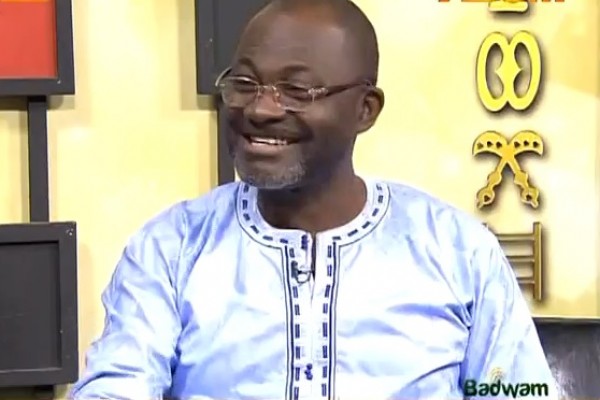The Increasing Confusion of ‘Religious Literates’ Who Are Ditching Faith for Evidence and Reason…
I have spent a lot of time in the last few years reading books, arguments, articles, listening to debates and talks by religious literates; mostly Islamic and Christian scholars combing through series of modern disciplines in search for evidence that God exists or religion is true.
The phrase ‘religious literates’ may sound like an oxymoron but in fact, there are many of such people—who mostly hold varying positions in relation to this one true God and His many religions.
Apart from the obvious contradiction in attempts by ‘religious literates’ to provide evidence for the existence of God or to establish the veracity of religion via evidence and the foundation of the belief in God-FAITH, these attempts make such people seem more confused about their own quest and beliefs.
If the belief in God or being part of a religious group is wholly and fundamentally grounded in FAITH which can be defined as ‘believing without evidence’, why then are so many religious people running around looking for evidence to authenticate their God or religion?
Of course the answer is clear, people are becoming smarter—and they would not accept any sort of hogwash thrown at them even if from the clergy, contrary to what the case was in the past.
The God believers and preachers have realized that the game is changing against them—people are shedding off the skin of credulity while embracing reason—FAITH which is perhaps the definition of credulity is losing the battle.
Believing by faith stretches to mean, in the face of all opposing evidence and reason to the existence of a God or the truthfulness of religion—just believe the latter…
From the Palaeolithic age to the era of Enlightenment, the God believers and religious zealots had it easy with humanity; people just believed everything that they were told and as such, the concept of FAITH was fit for purpose.
Today, the game has changed and a little 7 year old girl in Japan or in fact any of the secular countries wouldn’t agree to live her entire life believing in something if you cannot provide evidence to back the existence of that thing, especially if the belief contradicts reason.
This has somewhat become a deadly blow to religion leading to decrease in its global membership. In a 2012 study, it emerged that the third largest “group” in the world are those without religious affiliation—coming just after Christianity and Islam. This third largest-‘unaffiliated’ category is made up all those who profess no religion, from atheists and agnostics to people with spiritual beliefs but no link to any established faith.
Interestingly, Japan is a leader in this business—with 57% of its population falling within the ‘unaffiliated’ category, followed by the United States, where 16.4 percent of all Americans said they have no link to an established faith. The fact that we are producing more intelligent people means, more people will ditch the God and Faith concept. According to 63 studies conducted between 1928 and 2012, ‘the more intelligent a person is the less likely they are to believe in God’.
It’s therefore not a mere coincidence that such a huge increase in the number of people holding ‘no religious faith’ comes at a time when those who champion the idea of faith have decided to seek for a safe haven in evidence and reason.
I have heard some of the world’s greatest theologians/Christian apologists like Dr. William Craig and many religious scholars playing with modern scientific facts in their efforts to find evidence for the existence of God—or that a particular religion is true.
This exercise makes the whole God hypothesis a rather weak scheme because if such people where talking about the existence of God a century ago when we knew little about science, they would have grounded their whole belief or argument in faith—believing without evidence.
But today, the increasing nature of credence given to evidence; be it testable evidence, a valid argument or that which we can be measured with the tool of reason poses the greatest threat of extermination to religion and God—and the religious literates are panicking…
Even at the lowest level of the God and religion food chain, the ‘swam of believers’ are following suit; debating and arguing for the existence of God—and grounding their debate in reason and evidence. When in fact, we were told we ought to believe JUST by faith…
In spite of the weight evidence and reason carry, when the ‘religious literates’ and the many credulous believers cannot find a solid case for the existence of God and to authenticate religion, they quickly fall back on faith—-but mostly as their last weapon, evidently weak.
The statistics are interesting but what is more interesting is that, the concept of faith which is the fountainhead of the belief in God and religion is being somewhat substituted for a more contemporary and reliable concept—evidence and reason.
Do we need evidence that God exists or a religion is true for us to believe in? The answer has always been; of course NO—we believe by faith (believing with evidence) but today, the confusing answer seems to be; ermmm…let me check if I can find some evidence…





From that same article: “Overall, 84 per cent of the world’s inhabitants, which it estimated at 6.9 billion, identify with a religion” meaning only 16 percent do not affiliate themselves with a religion; i wouldn’t say that this is a great supporting statistic for your argument.
It’s not about support; it still a good number of people opting for reason and evidence as against FAITH—and it will surely increase with education reaching people. Remember that, currently, one in every five people on the planet is illiterate—the more education penetrates (which supports reason and evidence), a lot more will join the ‘no faith’ train.
The threat is clear and that is why the new religious people are seeking to ground their beliefs in reason and evidence as opposed to the old concept of faith.
Even if 1/5 of the people on earth are illiterate, that does not mean that they are all part of the religious group or that none of them are part of the “no faith group”. Even in that highly unlikely situation, it’s still 36% non affilliated to 64% affilliated.
Also, from that same article: “The ‘unaffiliated’ category covers all those who profess no religion, from atheists and agnostics to people with spiritual beliefs but no link to any established faith. ‘Many of the religiously unaffiliated do hold religious or spiritual beliefs,’ the study stressed. ‘Belief in God or a higher power is shared by 7 percent of unaffiliated Chinese adults, 30 per cent of unaffiliated French adults and 68 percent of unaffiliated U.S. adults,’ it said. ”
Thus, of the 16%(or at most 36%) non affiliated, a good chunk of them are believers who do believe in God or a higher power; they just do not identify with any of the popular religions.